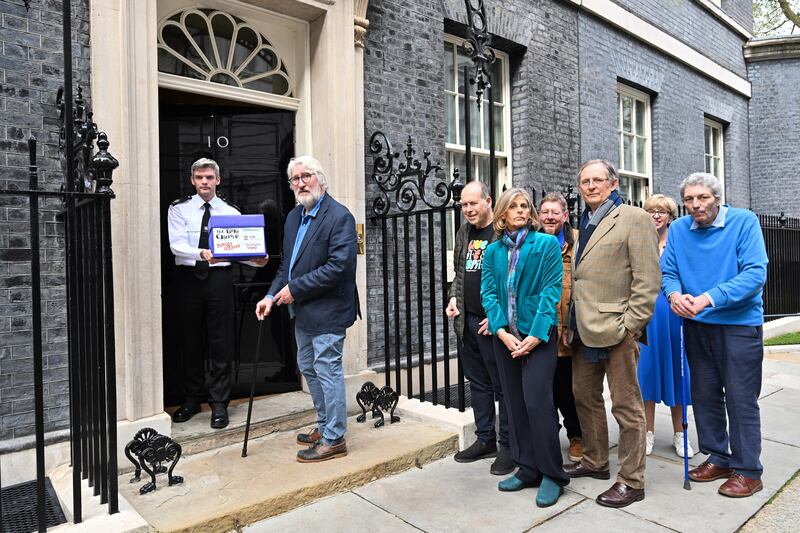The British government's proposals on how to deal with the past are incompatible with the European Convention on Human Rights, a panel of legal experts has claimed.
Details are contained in a new report prepared by the Committee on the Administration of Justice and academics from Queen's University Belfast.
Prosecutions, Imprisonment and the Stormont House Agreement: A Critical Analysis of Proposals on Dealing with the Past in Northern Ireland reviews all of the proposals put forward on legacy in recent years.
Last month Secretary of State Brandon Lewis sparked anger when he suggested that only Troubles killings with "compelling" new evidence and a realistic prospect of prosecution will receive a full police investigation.
The Tory MP added that there would be an “end to the cycle of reinvestigations that has failed victims and veterans for too long”, ensuring that ex-British soldiers in the north “receive equal treatment to their counterparts who served overseas”.
Earlier this week in a letter to Mr Lewis, Catholic bishops in the north, including Archbishop Eamon Martin expressed “deep concern” at the British government's position.
The bishops said it was concerning that they had departed from the Stormont House Agreement and the principle that “justice would be pursued, where possible, regardless of the identity of the perpetrator”.
Professor Kieran McEvoy from the School of Law at Queen’s University Belfast, who leads the team behind the new report, said the British government appears to have walked away from the 2014 Stormont House Agreement, which drew up mechanisms for dealing with the past.
“The latest government statement appears to envisage the abandonment of the structures proposed in the Stormont House Agreement in favour of a process wherein the bulk of outstanding conflict investigations would be ‘fast-tracked’.
“It is difficult to see how such a process could amount to an effective investigation as required under Article 2 of the European Convention of Human Rights.”
The academic said “it is clear that a driving influence on the UK government’s approach to legacy in recent times has been a desire to ensure that British soldiers do not go to prison for conflict-related offences".
“An unhelpful narrative has arisen falsely equating attempts to prosecute British soldiers for such offences with a ‘witch-hunt’,” he said.
The report deals directly with the 'witch-hunt' claims and concludes “that conflict-related investigations or prosecutions could be legally described as ‘vexatious’ or ‘malicious’ is not intellectually credible”.
CAJ solicitor Gemma McKeown said: “The reality is that for some members of the current government, and some back-benchers, even one soldier being convicted and imprisoned for conflict related offences is one too many. It is that urge for impunity, dressed up as ‘witch-hunt’ that appears to be propelling government policy.”
UUP justice spokesman Doug Beattie last night said the report was the “latest attempt to breathe life into the discredited Stormont House Agreement (SHA) legacy arrangements”.
“It is time for the government to listen to innocent victims and the Ulster Unionist Party will make no apology for repeating that message time and again,” he said.








